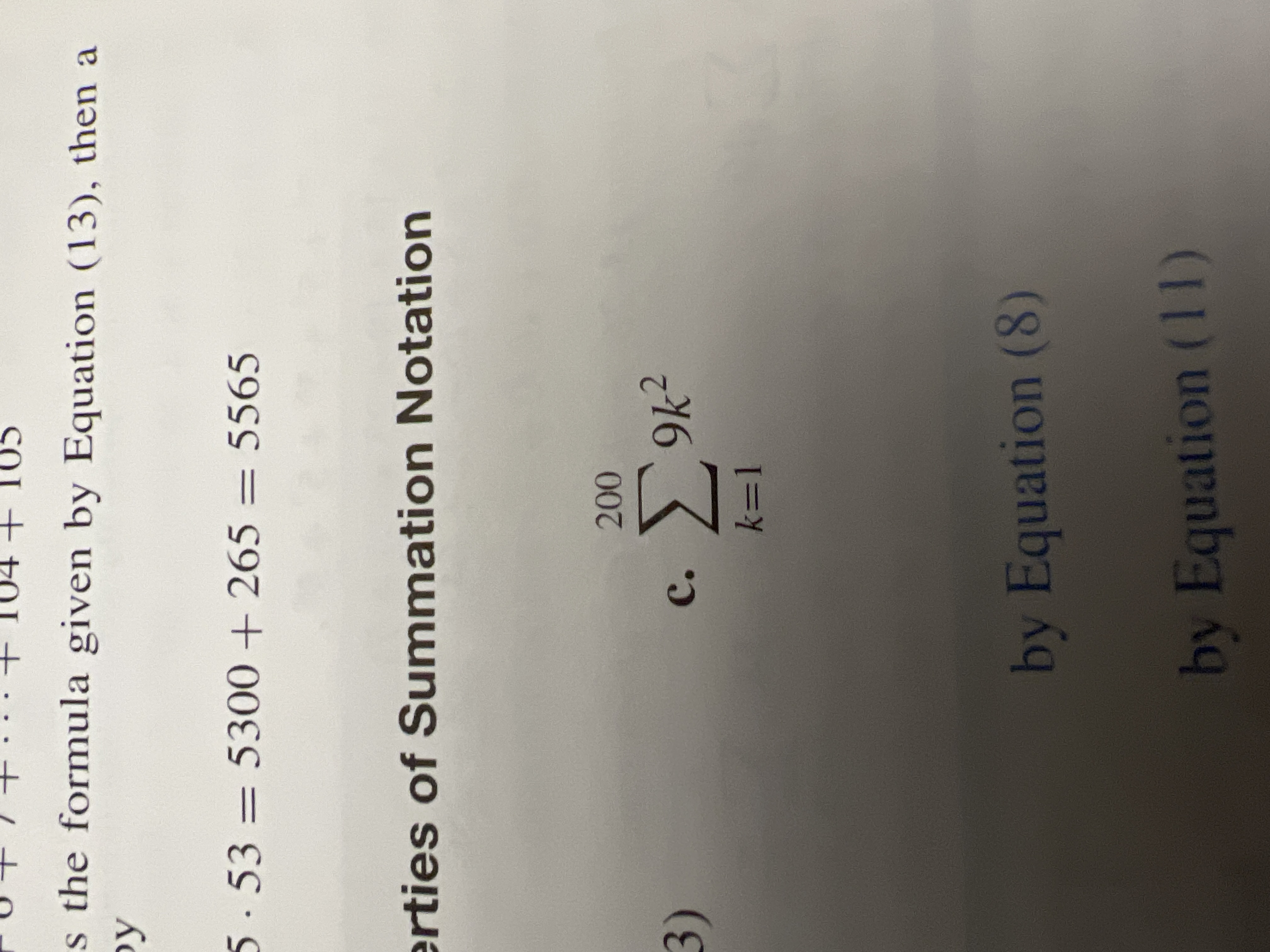Evaluate the summation Σ9k² from k=1 to 200.

Understand the Problem
The question is asking to evaluate the summation notation given by the expression Σ9k² from k=1 to 200. This involves applying summation rules to compute the total value for the given expression.
Answer
The answer is $24240600$.
Answer for screen readers
The final answer is $24240600$.
Steps to Solve
-
Identify the Summation Expression The given expression is $\sum_{k=1}^{200} 9k^2$.
-
Factor Out the Constant The constant $9$ can be factored out of the summation: $$ \sum_{k=1}^{200} 9k^2 = 9 \sum_{k=1}^{200} k^2. $$
-
Use the Formula for the Sum of Squares The formula for the sum of the first $n$ squares is: $$ \sum_{k=1}^{n} k^2 = \frac{n(n+1)(2n+1)}{6}. $$ For this case, $n = 200$, so we can substitute: $$ \sum_{k=1}^{200} k^2 = \frac{200(200+1)(2 \times 200 + 1)}{6}. $$
-
Calculate the Sum of Squares Now, we compute: $$ = \frac{200 \times 201 \times 401}{6}. $$ First, calculate $200 \times 201 = 40200$. Then, $$ 40200 \times 401 = 16160400. $$ Finally, divide this by $6$: $$ \frac{16160400}{6} = 2693400. $$
-
Multiply by the Constant Now multiply the sum of squares by the factor we pulled out initially: $$ 9 \times 2693400 = 24240600. $$
The final answer is $24240600$.
More Information
This calculation shows how summation notation can be simplified by factoring out constants and using known formulas. The sum of the first $n$ squared integers is a key formula in algebra.
Tips
- Forgetting to factor out constants before calculating sums.
- Misapplying the formula for the sum of squares, especially the denominator.
AI-generated content may contain errors. Please verify critical information